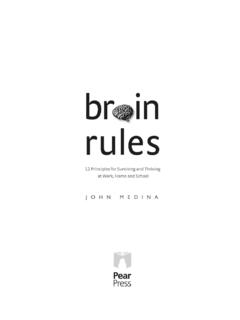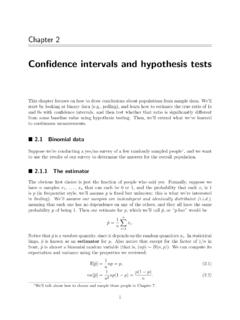Transcription of Meditations on Communion - Becoming Closer
1 Meditations ON THE LORD S SUPPERDO NOT BE INFLUENCED BY THE IMPORTANCE OF THE WRITER, AND WHETHER HIS LEARNING BE GREAT OR SMALL, BUT LET THE LOVE OF PURE TRUTH DRAW YOU TO READ. DO NOT INQUIRE, WHO SAID THIS? BUT PAY ATTEN-TION TO WHAT IS SAID. MEN PASS AWAY, BUT THE WORD OF THE LORD ENDURES FOREVER. - THOMAS KEMPIS THE IMITATION OF CHRISTON CELEBRATIONS (January 5) New Year s Eve and New Year s Day are traditional times of celebration for us. Have you ever thought what the word celebrate means?
2 We always want to celebrate with a crowd of people -- usually friends and acquaintances. Celebrating by yourself just doesn t seem to have the same feeling. We need a reason to celebrate. We celebrate the start of the year; we celebrate birthdays, anniversaries, holidays that roll around once a year -- but always, there is a reason for our celebration. It s most common that the reason looks to the past -- such as birthdays or anniversaries, or national holidays.
3 Even New Year s Eve, with its resolutions for the coming year, shows old Father Time on the way out as well as Baby Time coming in. Sometimes we celebrate a person, rather than an event. Memorial Day is for veterans; La-bor Day for workers; Valentine s Day for lovers -- and St. Patrick s day for anyone who can recognize the color green. Nobody celebrates with a diet. The diet starts January 2nd, not New Year s Day. Food and drink -- often too much food and drink -- are a very real part of a celebration.
4 Finally, a celebration is a happy time -- even a joyous one. The Fourth of July may have its solemn moments of remembrance -- but it must have fireworks. We use that same word, celebrate , to mean that we are taking the Lord s Supper. We often speak in our public worship of celebrating Communion . When I first thought about that, my reaction was, a completely different meaning of the word. But think about it: We celebrate the Lord s Supper in a group.
5 It may be a small group, even as small as two people, but a group is required. How many do you need for an anniversary? Do we celebrate for a reason? The greatest reason in the world: Jesus, the Messiah, died on a cross that we might have eternal life. If eternal life is not worth celebrating, then nothing is. That reason looks to the past, just like our other celebrations -- to the hill at Calvary. It is a greater celebration in that it also looks to the present, as we examine ourselves.
6 It is greater yet, for it looks to the future -- when He returns. Some celebrations are for events; some are for persons; ours is for both. It is the celebra-tion both of the Crucifixion and the Crucified. Surprisingly enough, even this most sacred of celebrations must be done with food and drink. In its roots, the Passover, it was referred to as the Feast. Other celebrations fatten the body; this one feeds the soul. So then, when you take it today, do not neglect its solemn aspect -- but remember, this is a celebration.
7 Take, eat -- with joy. DIAMOND IN THE SINK (January 12) My wife is not a woman given to water power. She does not go into tears over the minor up-sets of life. She is not one of those women who use tears as a weapon to get what she wants. When she cries, she means it. When she cries, I pay attention. So you can imagine that I was extremely concerned when I came home one day to find her hov-ering over our kitchen sink, bawling her eyes out. She was clearly crying over something in the sink, and it wasn t onions.
8 It took some time for me to get her sufficiently calmed to find out what happened. She was crying because she had lost the diamond out of her engagement ring. It s interesting to see the difference in our reactions. My first thought was, You ve got to be kidding? (If you knew how little that diamond cost -- and it was the biggest one I could afford at the time -- you d understand my first reaction). To me, it was a relatively inexpensive gemstone.
9 To her, however, it represented her marriage. She had lost the symbol of something which (she tells me) makes her happy. I began to think about it in a different light. Isn t it interesting that the deepest form of communication in our species is symbolic communi-cation? It is the least precise form of communication, to be sure, because its meaning depends both on the one talking and the one listening. For example, when I see an American flag -- a symbol -- it carries deep meaning to me.
10 For many of you it does also, but the meaning is somewhat different. Yet we refer to these meanings by the same symbol. The communication is not complete in what I say when I show the flag; it needs your experience to be complete communication. To my wife, that ring was symbolic communication from me to her, and it was very precious. That s symbolic communication. It needs a symbol, like the engagement ring. It needs a sender, but it is not complete without the experience of the receiver.










